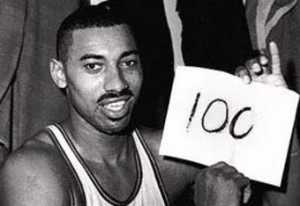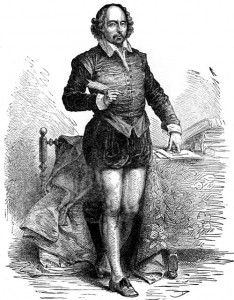A few weeks ago, we asked Palate Press readers to tell us how they felt about rating systems. Did they prefer the 100-point system, stars, or badges? Or would they rather have no ratings at all? The result?
- I like reviews without ratings 49%
- I want good wines given badges of approval 20%
- I want wines rated on a 5-star scale 16%
- I want wines rated on a 100-point scale 13%
- I want a system other than those listed above 3%
No rating system received a majority, though no rating at all got a large plurality. There was a near-perfect 50-50 split between ratings and no ratings, so we asked two members of our Editorial Board, Rémy Charest and W. Blake Gray, to take their ongoing argument discussion on-line. Feel free to join in the fray.

Remy: In the world of wine, point scores are stupid.
If you’re going to buy a wine because it scored 90, you might as well buy it because it’s on special for $9.99. Is that really a reason to buy or drink a wine?
A score says nothing. It may say 95 – implying awesomeness – but it really doesn’t say anything. Is it 95 because of its “gobs of ripe fruit”, as Wine Spectator reviews so often throw at us, or because of subtle nuances, refreshing acidity and complex minerality? If you’re just relying on the score, you’ve gotten no useful information. You’re as likely to be disappointed – and pissed off you paid more of your hard-earned money for the wine – than to really like you. Might as well spin around three times and buy whatever your finger points at when you stop spinning and open your eyes, or go “eenie, meenie, miney, moe…”.
Scores are, at best, a lazy shortcut. Most often, they are a tool of mass market distortion. Do I really have to get into the 89 vs 90 question? If the taster got up in a bad mood, the morning of the tasting, your wine doesn’t sell as well because he scored it below that sacred threshold? That’s wrong in so many ways.
Scores also create an aura of objectivity that, quite frankly, doesn’t exist in wine tasting. I don’t mean to say that professional tasters are not doing their work as best they can, that they are not trying to assess wines in as objective a way as possible, but it just can’t be done. It’s not like test-driving a car and evaluating acceleration and gas consumption. Wine is, by definition, a contextual, subjective thing. Assigning a score to a wine is an attempt to take wine completely out of that context, and although there are certain objective means of evaluation, context trumps “quality” at every step. It all depends what you are looking for, what your mood is, what the wine is for. Screaming Eagle may knock all your friends off their chairs at a blind tasting, but it would be disgusting served by the pool on a hot summer day. Does that mean the 8$ bottle of Vinho Verde is better? Well, on a hot summer day, yes.
Point scores are a way to fit round wines into square holes. Not helpful in any way.
Writing tasting notes takes time and commitment, and writing that allows the reader to situate him or herself in relation with what you wrote. Take Wine Advocate, for instance, the poster-boy publication for scores: when Robert Parker assigns a 91 on a wine, and when David Schildneckt does the same, would the same wine buyer be as satisfied by one or the other? Their palates are so different that just reading their scores would create confusion, above all. Read the tasting notes, willya?

Blake: Remy, you lost me on your third sentence, because I think a good sale price is a perfectly good reason to buy a wine, assuming other factors point in its favor as well.
Do I like the region/varietal? Am I familiar with the producer? If there are any tasting notes — and if I can trust them, which is a huge issue — does it sound like the kind of wine I’d like?
I’ll make exactly the same argument about ratings. They are another piece of information. They shouldn’t replace tasting notes, but they are a quick, useful way of learning how enthusiastic the reviewer was about the wine.
The thing I never understand about no-rating zealots (yes, I include you in this) is this: Why do you want me to have less information? You don’t have to use a critics’ ratings as a guide. But why deprive others of the scores?
I also think anything you can say negative about different tasters giving different ratings to a wine can also be said about tasting notes. If Robert Parker likes a different style of wine from me, why would his ratings-less tasting notes be any more useful?
Too often I believe people who rant against ratings are really ranting against critics they don’t like. That just means you need to find critics you can trust. That’s true whether or not you pay attention to scores.
One more thing about the anti-ratings argument. As a blogger, I try never to talk down to my audience. I trust my readers to understand my point. Saying readers can’t be trusted with the additional information of a rating shows something bad about one’s relationship with them. My readers aren’t children, and I don’t treat them as if they are. Ratings are subjective — Roger Ebert’s ratings are subjective, and so are Steve Tanzer’s. Do you really believe movie viewers think Roger Ebert’s ratings establish “an aura of objectivity?” I give them more credit.
At least we can agree on the greatness of Vinho Verde on a hot day. I’ll give that experience a 95 — no, make it a 97.

[polldaddy poll=3732038]
Remy: Strangely, Blake, you sort of made my point by saying that price can count “assuming other factors point in its favor as well”. I’m a total believer in the other factors that let you know what a wine is all about. Ratings, however, are not another piece of information. I believe they actually hinder the passing of information. How many stories have you heard about wine sales going crazy just because they scored 90+, while the 89 stick around the shop? Does that single point really mean that much? Especially when we know how variable our impressions can be from day to day – heck, professional judges can’t even give the same medal to the same wine twice (http://tinyurl.com/d5ay8v). So even when scores can be helpful – in sorting out a panel tasting – they are inconsistent. Another example of the uselessness of scores is this recent tweet by James Suckling, a guy who really believes in scores: “Just tasted range of Domaine de Chevalier reds. 2009 clearly best. 95+”. The note doesn’t say much, and the score adds nothing. Which brings us to the core question: notes should tell us something. They should be descriptive, informative, expressive and much more than just a series of aromatic descriptors. They should provide context, situate the wine within a producer’s range and within a region’s production, etc. The problem may well be that a lot of tasting notes are too limited and unhelpful (again, how many “gobs of ripe fruit and chocolatey notes” can you read, and how does that help you choose?), but adding a score to them doesn’t help any. In the end, I believe that adding a score to a tasting note may well be talking down to the audience, by assuming that they would need a number to help them figure out if your tasting note was enthusiastic or not.

Blake: We agree on so much — Vinho Verde, the importance of context. Yet you insist on forcing me to defend James Suckling. You wound me. I’m not going to do it. The concept is not the executor. I could, if I chose, brandish thousands of incoherent, ratings-less tweets about wine to show how useless they are. But the concept is not the executor. Personally I assume that I’m not always a good enough writer for my readers to tell from my tasting notes which of several wines I would recommend, if I could buy only one. That’s the real-world decision people face every day. Maybe the correct answer is “any of these three or four Albarinos would be good.” But they’re only going to order one. You’re also assuming that everyone takes the time to carefully read and consider various wines’ taste profiles. That’s a nice ideal, but they might be looking through a wine list and checking out reviews on a Blackberry, and they might have an impatient dining party waiting for them to pull the trigger on a $100 wine. For people in this situation — even wine geeks find themselves in it once in a while — information needs to be transmitted quickly. To not give ratings is to abdicate. If I don’t give them a number, James Suckling will. And so will the PR people who represent the wine, under assumed names at a certain public wine-rating site I won’t mention. This is how Robert Parker got power in the first place. He gave ratings to French wines that had previously only been described in prose, and people wanted them. I’ll defend Parker here. His universal-scale ratings helped convince people that they didn’t have to buy a first-growth Bordeaux to have a truly great wine. You might hate ratings, but I don’t think we’d have today’s vibrant international wine scene without them, because people would still believe there’s a pecking order of regions and a great wine for Coonawarra or Maipo Valley is only that — so why bother with it? Ratings aren’t going away whether we do them or not. You can try convincing me to stop giving ratings. You can convince Joe Roberts and work on Alder Yarrow and any number of our other colleagues in alternative wine criticism. Good luck convincing the Wine Advocate and Wine Spectator. Every battle that an anti-ratings crusade wins gives those organizations more power and authority. James Suckling is on your side, not mine.
 Rémy Charest is a Quebec City based journalist, writer, and translator. He has been writing about wine and food for over 12 years in various magazines and newspapers. He writes two wine blogs (The Wine Case, in English, and À chacun sa bouteille, in French) and, as if he didn’t have enough things to do, he recently started a food blog called The Food Case.
Rémy Charest is a Quebec City based journalist, writer, and translator. He has been writing about wine and food for over 12 years in various magazines and newspapers. He writes two wine blogs (The Wine Case, in English, and À chacun sa bouteille, in French) and, as if he didn’t have enough things to do, he recently started a food blog called The Food Case.
 Wine writer W. Blake Gray is Chairman of the Electoral College of the Vintners Hall of Fame. Previously wine writer/editor for the San Francisco Chronicle, he has contributed articles on wine and sake to the Los Angeles Times, Food & Wine, Wine & Spirits, Wine Review Online, and a variety of other publications. He travels frequently to wine regions and enjoys coming home to San Francisco.
Wine writer W. Blake Gray is Chairman of the Electoral College of the Vintners Hall of Fame. Previously wine writer/editor for the San Francisco Chronicle, he has contributed articles on wine and sake to the Los Angeles Times, Food & Wine, Wine & Spirits, Wine Review Online, and a variety of other publications. He travels frequently to wine regions and enjoys coming home to San Francisco.

